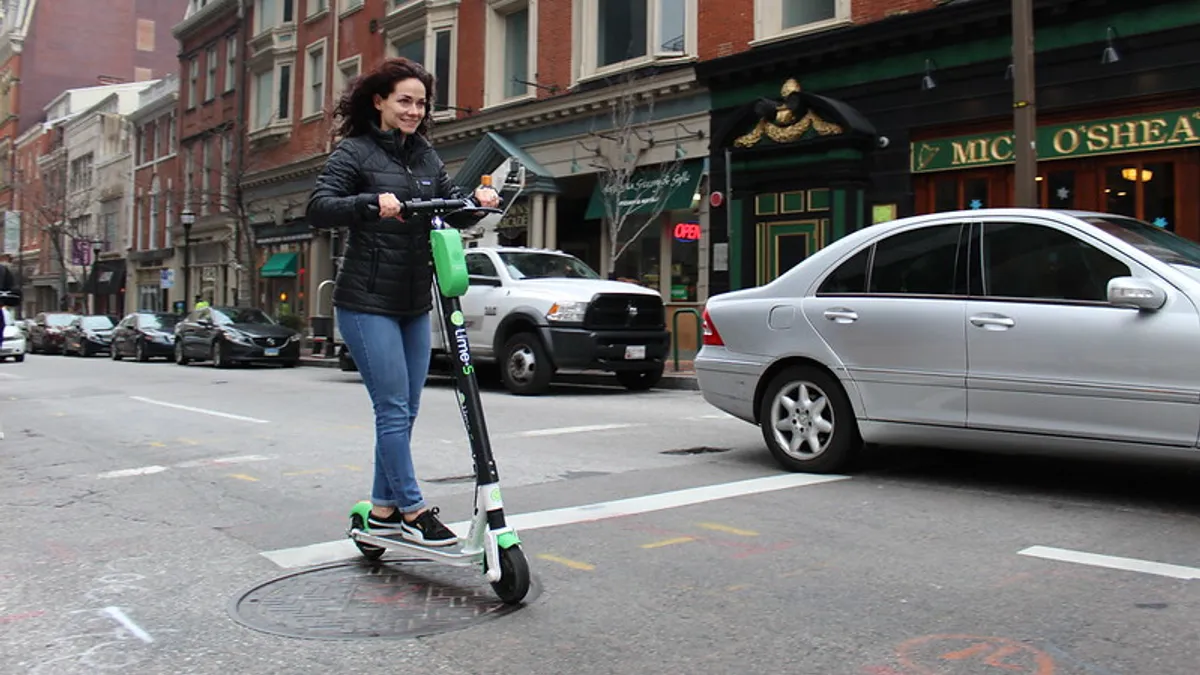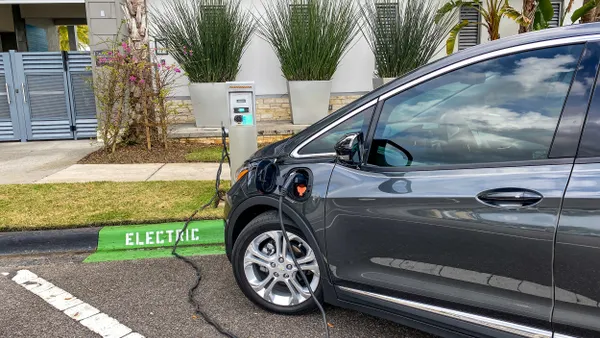Dive Brief:
- The New York City Council voted Thursday to approve a dockless bike and scooter pilot program after years of debate, both at the city and state level.
- Under a new law, the New York City Department of Transportation (NYCDOT) would be required to launch the pilot by March 1, 2021. The law includes provisions to give priority to neighborhoods currently underserved by existing bike-share programs, and requirements for operators regarding the public right-of-way and accessibility. Scooters would still be banned in Manhattan.
- The three-bill package of legislation, introduced by City Councilmember Fernando Cabrera, also removes provisions in local law against the operation of e-bikes and electric scooters, and allows for the use of scooters and bikes up to 20 mph and 25 mph, respectively.
Dive Insight:
New York has lagged many other U.S. cities by prohibiting electric bikes and scooters outside of limited pilot programs, thanks in large part to provisions in state law that made the vehicles illegal.
After Gov. Andrew Cuomo, D-NY, vetoed a bill last year that would have legalized these vehicles, he introduced similar legislation through the state's FY21 Executive Budget that established operating and safety measures Cuomo felt were lacking. That policy proposal received the state legislature’s approval in early April.
City-level legislation to legalize e-bikes and scooters has been on the table since 2018. While Cabrera noted New York will be the first city in the state to have such a pilot program since Cuomo's budget was approved, other elected officials noted how quickly the marketplace of new mobility offerings has expanded.
"Over the past few years, we have seen a large expansion of e-bikes and scooters," City Councilmember Ydanis Rodriguez, who chairs the council's Transportation Committee, said during that committee's meeting Thursday. "The way in which we move around has increasingly evolved. With shared mobility services popping up in cities around the world, companies such as Bird, Lime, Uber, Lyft, have popped up throughout cities offering consumers the ability to travel in a different way."
Micromobility operators have long been excited about the prospect of moving into New York City amid what they say is "pent up demand" for dockless scooters. A recent survey conducted by the New York League of Conservation Voters (NYLCV), the Tri-State Transportation Campaign (TSTC) and Lime found that 92% of respondents would use scooters during the coronavirus pandemic as an alternative to cars.
In a statement, Phil Jones, Lime’s senior director of government relations, said the survey shows New Yorkers' "overwhelming desire for more transportation options."
Meanwhile, Bird CEO Travis VanderZanden said the company would be "honored to serve the city" in a pilot program, and praised councilmembers for passing the legislation.
"With the passage of today’s bill, New York City recognizes the 'next' transportation normal is one that indexes on shared micromobility, such as e-scooters and devolves from cars or ride hail options that contribute to increased pollution and decreased safety throughout communities," VanderZanden said in a statement.
However, elected leaders indicated there is more work to be done. During the Transportation Committee meeting, Rodriguez said he had a "lot of reservations" about the bills, even though they had his support. In particular, he said that charging infrastructure for the electric bikes and scooters has not yet been adequately addressed, while he expressed concerned about safety.
Council Speaker Corey Johnson said during the meeting that the legislation is "timely" given the city's struggles with the coronavirus and its ongoing recovery. The city's subway system has been hard hit, and Johnson said more choices for transportation are "more important than ever."
Cabrera added that the new laws are particularly helpful for delivery drivers who rely on e-bikes to do their jobs. He said during the Transportation Committee meeting that the legislation will "literally move us forward towards transit equity, social justice, environmental protection and the reduction of car traffic."












